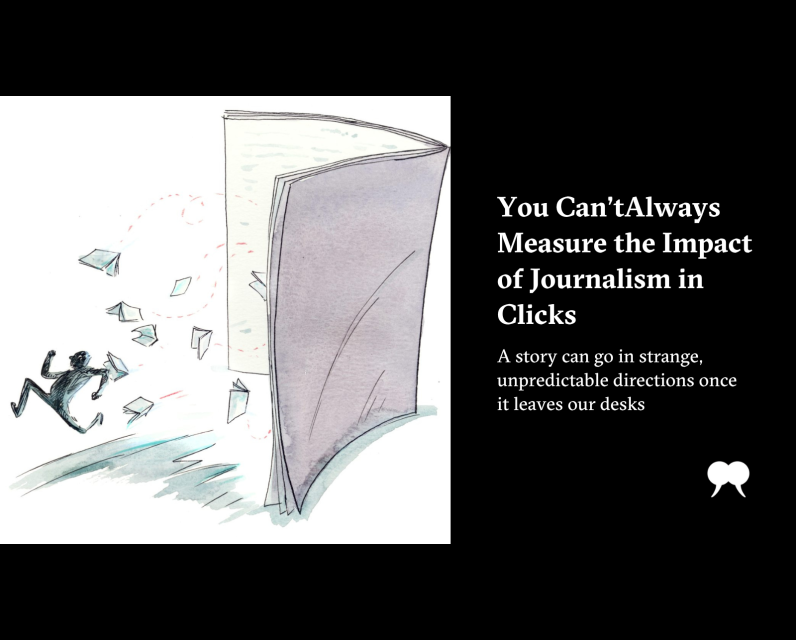You Can’t Always Measure the Impact of Journalism in Clicks

A few weeks ago, Senior Editor Harley Rustad sent me a real estate listing over Slack. No note. No context. Just the link. This was odd—Harley, as far as I knew, didn’t moonlight as a realtor. Of course, I clicked.
On 157 acres of Niagara farmland, twenty-five minutes from Hamilton, sat a 57,650-square-foot compound: a “grand foyer,” a commercial kitchen, a gym with a rock-climbing wall and boxing ring, a library, a science lab, a soccer field. Marketed for “educational use, a corporate retreat, or repurposing,” it carried a $9.4 million price tag and the promise of “outstanding potential.”
But the photos told another story: dorms, hallways, a mess hall—all deserted. The place felt frozen, as if everyone had fled at once. It didn’t look like something to buy. It looked like the site of something gone terribly wrong.
And then it hit me. This was Robert Land Academy. Once a “tough love” military-style private boarding school for boys, now abandoned and bankrupt. Empty of students. Empty, too, of the staff who, as we relentlessly reported over the past year, abused them, according to lawsuits filed against the school. What the kids endured is shocking: public shaming, racist harassment, withholding of food, sleep deprivation, forced outdoor exposure in winter, and isolation. The lawsuits—which now number more than eighty in total—claim administrators maintained a system “designed to cover up” sexual, psychological, and physical cruelty. Survivors describe lasting trauma, with some saying the school “destroyed” their childhoods.
This “expansive property,” in other words, was the visual record of a crime scene. It was also proof of justice served: contributing writer Rachel Browne’s series of investigations helped shut down the institution in April.
We’re no strangers to dramatic results. In 2017, a joint investigation with the CBC’s Fifth Estate into seniors who had vanished in Muskoka uncovered secret police documents and new details on the decades-old case. In 2024, our exposé of former art director Ferdinand Eckhardt’s Nazi affiliations pushed the Winnipeg Art Gallery to cut ties with its founding leader and prompted Premier Wab Kinew to strip Eckhardt’s name from Manitoba’s Order of the Buffalo Hunt, one of the province’s highest honours. Michelle Cyca’s recent reporting about so-called “pretendians” forced long-overdue public reckonings for people who have sidestepped accountability for years. And Soraya Amiri’s coverage of Afghanistan has become a trusted record that’s shared in WhatsApp chats, X, and across the diaspora.
Will our November issue create aftershocks? Maybe. Whether we’re taking stock of Mark Carney’s first months in office, grading the Truth and Reconciliation Commission’s progress a decade on, or scrutinizing China’s record of executing Canadians, each story asks the same question about power: who wields it, who keeps score, and who lives with the consequences?
But the impact of our reporting can’t always be captured in headlines—or in page views, time on site, and social shares. More often, it’s the strange, unpredictable directions a story takes once it leaves our desks. How it takes up space in a reader’s life—stirs a memory, sparks dinner table debate, or completely changes how they think about a subject. You can’t plan for that. You certainly can’t control it. But it’s the reason most of us got into this business in the first place.
The post You Can’t Always Measure the Impact of Journalism in Clicks first appeared on The Walrus.
Comments
Be the first to comment